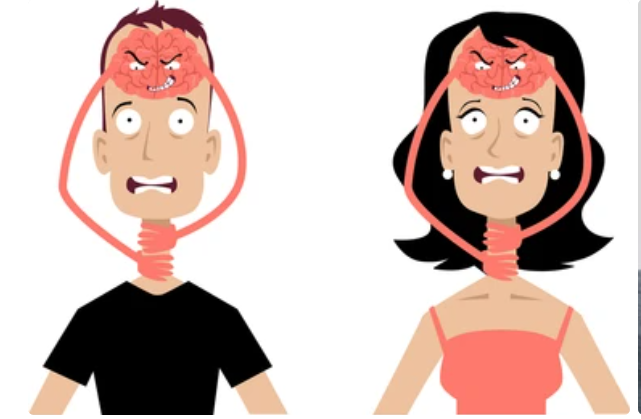How to Stop Catastrophising
Catastrophic thinking is a distorted way of thinking that
pushes us down and then gives us a kick: we do not just imagine the worst will
happen. We also believe that when the worst does inevitably happen, the results
will ruin us.
Say you have misplaced your credit card. Immediately you
think someone has picked it up. They are using it. They are going to drain your
bank account. What is more, you decide, they are going to steal your identity
and your entire life is ruined.
Or you notice a pain in your side. It must be cancer, you
decide. You are going to die, you tell yourself. Even worse, the treatment will
be too expensive and your family will be plunged into poverty and they will end
up homeless and the kids’ futures will be ruined.
It is not real. It is not rational. You are catastrophising.
What is catastrophising?
Catastrophising is sometimes called “worst case scenario
thinking”. David Robson, author of The Expectation Effect: How Your Mindset
Can Transform Your Life, calls catastrophising “a mental habit in which you
overestimate the chances of something bad happening, and exaggerate the
potential negative consequences of that scenario.”
As French philosopher, Michel De Montaigne, once described,
“My life has been full of terrible misfortunes most of which never happened.”
Why is it so damaging?
This kind of negative thinking can have intense
psychological and physical consequences.
Not to catastrophise, but this kind of negative thinking can
make you more vulnerable to other mental conditions, and can even increase your
feelings of physical pain.
One of the reasons is that your body and nervous system
cannot tell the difference between real danger or imagined danger. When you
think catastrophic thoughts, your system has a stress response, which reduces
your ability to think clearly.
“The catastrophic misinterpretation of the bodily signals
fuels anxiety and fear, which then makes it more likely that you will interpret
the situation catastrophically,” says Barnabas Ohst, a psychotherapist in
Freiburg, Germany, and a co-author of a recent meta-analysis examining the role
of catastrophic thinking in panic disorder.
Secondly, catastrophising can make your more vulnerable to
other mental illness including phobias and obsessive-compulsive disorder. It
can also make other anxiety conditions worse: you can imagine the impact of
perfectionism mixed with catastrophising: every tiny mistake you make would
mean your life is ruined.

So why do we do it?
As humans, we have a cognitive basis towards the negative.
We are conditioned to search for and hone in on potential threats. This served
us well in the distant past when we had to avoid predators. In our current
society, this can go haywire.
While some people only catastrophise about certain aspects
of life, such as their health, or the kids’ safety, or their career, for many
people, it is a mental habit.
It can be triggered by prolonged stress (such as ongoing
global pandemic and economic crisis), but it is often built-in from an early
age.
Note: While catastrophising can simply be a bad habit, it
can also be a sign that you may be experiencing burnout, or that your mental
health is suffering in another way.
Reach out for professional help if you are struggling. If
you or someone you know is in crisis, call Emergency Services. For further
information and support, ask your doctor for guidance.
How to stop catastrophising
The most proven and effective way to break the cycle of
catastrophic thinking is become aware of it. “Awareness is essential,” says
David Robson, “so the first step should be to pause your thinking and to
recognise when your mind is going down a psychological black hole.”
The keywords to watch out for are “always” and “never”, the
key feelings are dread and doom. Then, challenge your automatic thoughts and
question whether they are rational or realistic.
A good trick here is to imagine you are advising a friend.
If your friend had a presentation due to work, and they believe they are going
to mess it up and embarrass themselves, get fired and never find a good job
again, what would you tell them?
Chances are you would remind them of times when they have
done well and you would encourage them to rationally problem-solve by spending
more time preparing and practising. Remember, you do not have to believe
everything you think!